“The name that can be named is not the eternal name.”
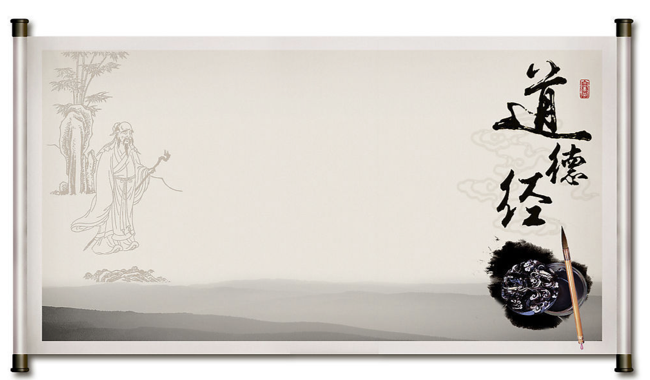
What does Tao Te Ching mean?
None of the three words in the title of the book by Lao Tzu is in English, so we will need to look at the original Chinese characters to find out what it means.
First, let us see the three characters as separate, independent words.
The first character ‘Tao’ is 道. It has several meanings, among them is ‘the way’ or ‘the path’. So we may interpret it as referring to the underlying principles of the universe.
The second character ‘Te’ is 德. It is often translated as ‘virtue’. This is a very loose translation, as virtue can mean different things to different people. In the context of the book, a more appropriate translation would be ‘the application of Tao’.
The third word ‘Ching’ is 经. It can mean a classic or scripture.
If we put the three characters together, the title of the book would then mean ‘The Scripture of Tao and Te’.
Now, let’s read the first two characters ‘Tao Te’ – 道德 – as two syllables of one word. ‘Tao Te’ as a word is often translated as morality. So the title of the book is sometimes translated as ‘Book of Morality’.
The translation, nevertheless, is not really appropriate. Morality is more a subject of Confucianism. Lao Tzu’s focus is not on morality, as it is dictated by men. What Lao Tzu wants us to do is to abide by are the laws of the universe rather than those set out by men .
Having said that, it should be noted that the book had no title when it was written. Lao Tzu did not give it a title, neither did he divide the book into chapters. These were all done by later generations. For many years, the book had been known only as Lao Tzu, i.e. name of the author. It was Emperor Jing (188 BC to 141 BC) of the Han Dynasty who bestowed it the title of ‘Tao Te Ching’ that we know today.
The book is also known as Dao De Jing, if you go by the pinyin system of pronunciation. Over the centuries, it also went by a few other names, among them Five Thousand Characters and Shangzhi Jing. So do not be alarmed if you see the title of the book being translated in other manners.
No wonder Lao Tzu would say in the opening chapter of the book, “The name that can be named is not the eternal name.”

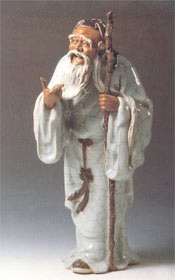
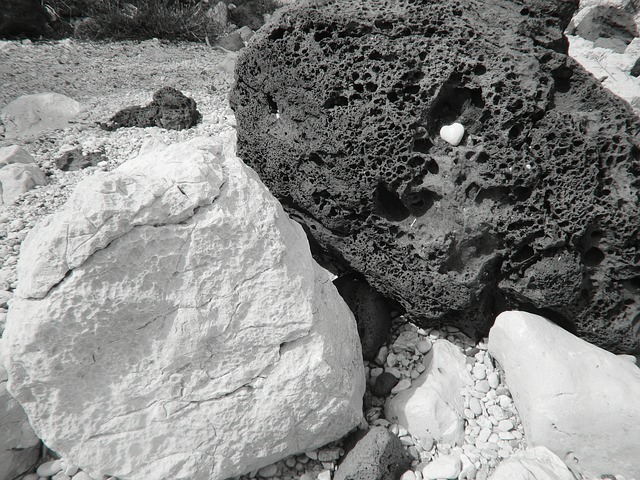
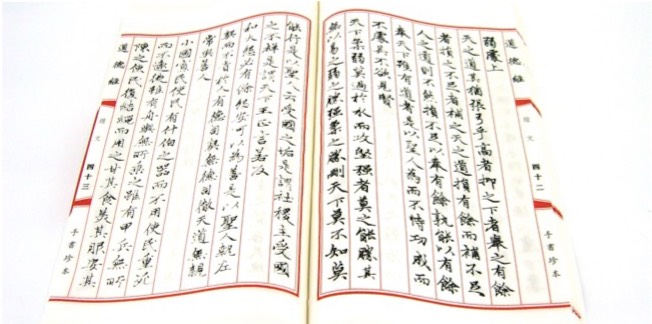

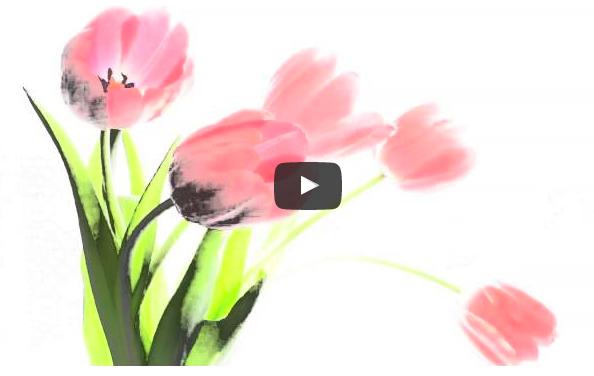
It should not be translated as “Book of Morality.” The Tao Te Ching at one point talks about how after the Tao is lost, there’s talk of “morality”, after that “conscience”, and finally “justice.”
I have always felt that Christianity can be helped out by understanding of the Tao. The average Christian is too interested in proselytizing and proclaiming their faith.
Now I’m coming to realize that Taoism ought to be tempered with Christianity, notably with the idea of grace. It is one thing to see a law (whether it is a law of nature like the the Tao or a Law more like the Jews have), it is quite another to believe you can possibly live up to it. Heaven and Earth live according to the Tao, but the Tao of humanity is ultimately to be a human. While it is inspiring to be humble and unselfish like the Sage (and one ought certainly not to live and die to ambition), the Tao becomes irrelevant if it represents a model that we can’t follow.
If the Tao concerns morality, discard it and live like regular people.
Yes, Tao Te Ching is not a book about morality. Taoists are not interested in morals and ethical conduct. Though there are many chapters that deal with the art of leadership and other political matters. Those chapters made us think of a mixture of Taoism and Confucian ethics. So we must admit that Tao Te Ching is a composite book and we are not able to recognize the original chapters written by Master Lao. I like your definition of Te – though a better definition is “the way Tao proceeds”.
Tao Te Ching – The Scripture of Tao and Te’.
Tao Te Ching – The Story of Tao and Te’
It is my view that the Tao describes enlightenment. It’s cryptic descriptions are designed to confound the mind, which is the very thing one is trying to accomplish in meditation, to drop the mind. The mind is like a cocoon, very necessary in spiritual development, but when the wings are ready to spread, one must drop the mind in order to achieve the full metamorphosis. I suspect Lao Tsu, by writing the Tao Te Ching, perhaps thought such a text would aid in that pursuit, (and for me, it does ) like signposts pointing to the right direction as one rises in consciousness through meditation on what seems like an impossible journey where getting lost is a daily companion, the significance of one’s epiphanies are confirmed by the cryptic passages which only make sense in such epiphanies, until the day comes when one has achieved full enlightenment, do the words then fully make sense.
Enlightenment does not come all at once, it comes like the ocean tide rising to one’s toes, tickling them, receding, and then coming back, again and again, until the wave comes and overcomes you. Nature gives you glimpses, many of them until what you are seeking becomes visible like a ship on the horizon coming closer and closer until you can see it’s detail, and when reaching that point, one does not need a guide any more, you are on the verge of having your ship come in, i.e., becoming fully realized.
But, of course, I’m just someone who has his own experiences, I do not profess to grasp what were the true intentions of Lao Tsu or state what they mean — I’m just speculating based on my own experience, what makes sense to me. In my own journey, whenever I have a spiritual experience through meditation ( another way of saying “epiphany” ) I go back to the Tao Te Ching, and it’s passage’s meaning illuminate, light up, eyes widen, what they really mean. But, this is my experience, your mileage may vary ( sorry for all metaphors:) ). I haven’t achieved enlightenment, fully, not yet,though I feel at times I’m on the verge, like a sneeze you feel coming on but never strong enough to sneeze. It is my life’s goal, and it should be and no doubt is yours, as well. You’d better get cracking, as politicians are hellbent on destroying the earth. There may not be a lot of time 🙂
I was once asked, what happens to the soul if earth is destroyed before one achieves enlightenment? Good question, and the answer is — no one knows. I suspect we’ll all just migrate to some other planet where they haven’t destroyed themselves. Thing is, who knows what kind of planet it will be? It might be a hellish world, a paradise, or something between like Earth. Nevertheless, no one knows. Better the reason to waste no more time, and meditate a lot, and ignore what is going on the world, its all a distraction, stick to your goal. Good luck.